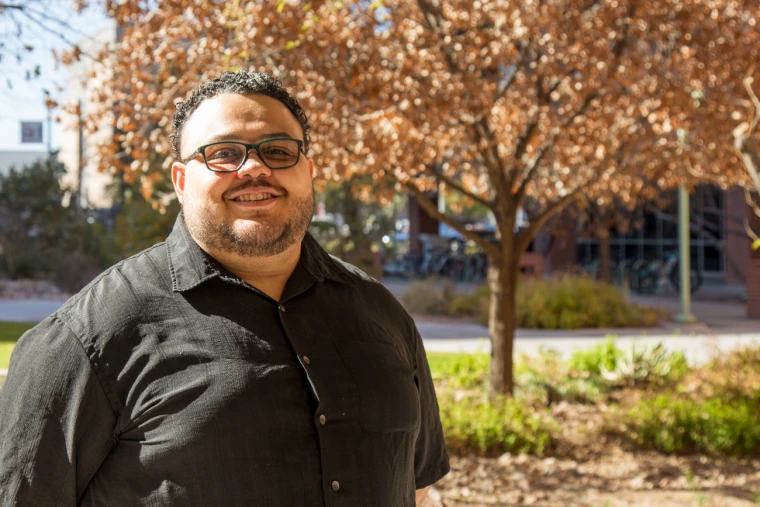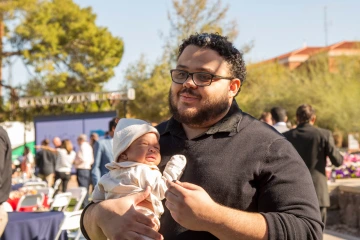Curtis McGuire, MS: ‘What I’m meant to do’
Ever since a chance encounter in an outpatient clinic, Curtis McGuire has kept his eye on the prize: a career as an anesthesiologist.

Medical student Curtis McGuire plans to become an anesthesiologist.
Anna C. Christensen
Growing up in Phoenix, Curtis McGuire, MS, had his sights set on the NFL, but by the time he was in community college, he was tired of the injuries and looking for a new direction. And then an anesthesiologist walked into the room.
“I took my mom to cataract surgery and we’re sitting in the pre-op area. In walks an African American man. He introduced himself as the anesthesiologist,” McGuire recalled. “He had a really infectious personality, and he seemed to love his job.”
Though McGuire planned to pursue a career in physical therapy after earning a degree in kinesiology at Arizona State University, a seed was planted in his head.
“When I had this encounter, I switched everything. I went outside my major to finish pre-reqs for med school, like physics, biology and anatomy,” he said. “You don’t see a lot of people in med school with a degree in kinesiology — it’s unique.”
A steppingstone to medical school
After completing his degree, McGuire learned about Pre-Medical Admissions Pathway (P-MAP), an intensive preparation program for promising students who have faced considerable obstacles, he was quick to apply — and was accepted.
“It was formative for me,” he said of P-MAP. “Once medical school started, I knew how to take a physical history, how to take high-stress tests — I had done this before.”
In addition to giving him the opportunity to earn a master’s degree in cellular and molecular medicine, P-MAP also had the unexpected benefit of helping McGuire adjust to medical school during the pandemic.
“When we started, we had a couple of classes in person, and then 25% of the class got COVID so they switched us back to virtual learning. It was kind of isolating, except we already had a community of other P-MAP people.”
A commitment to anesthesiology
McGuire says he kept an open mind to other specialties during medical school, but never wavered from his original goal to become an anesthesiologist.
“Fourth year, I got to do a lot of rotations in anesthesiology,” he said. “It helped me develop my true love for doing anesthesia, and it reaffirmed that this is what I want to do with my career.”
McGuire cites Jerry McCoy, MD, PhD, associate professor of anesthesiology, as an especially influential mentor, remembering a pivotal experience in the operating room.
“The patient coded, and watching Dr. McCoy, up close and personal, save this patient’s life was life changing. Seeing her pull through and survive was incredible,” he recalled. “I got to do compressions for the first time on a real patient. It taught me that I can stay calm in the chaos.”
A match made in Tucson
In March, McGuire was joined by his family, fiancée and 3-month-old son when he opened his envelope to learn where he’d spend the next several years training to be an anesthesiologist.

Curtis McGuire holds his 3-month-old son Kai after learning his family will stay in Tucson as he completes his residency in anesthesiology.
Anna C. Christensen
“I’m doing my intern year at Tucson Medical Center and I matched for anesthesia here at the University of Arizona,” McGuire said. “That’s where we were meant to be. Continuing those relationships, learning anesthesia with great mentors — I’m excited for this next step for me and my family.”
McGuire says that, more than anything, he’s looking forward to being an anesthesiologist.
“I love the one-on-one patient care — going into a room, seeing someone stressed out because they’re going through something really traumatic,” he said. “I want to enter the room and start their day on a good note, be responsible for their well-being throughout the procedure and get them back safely to the post-op area. Doing that every day seems like what I’m meant to do.”
Show your support for future physicians entering the P-MAP Program by giving to the College of Medicine – Tucson.

